The history of Ferris wheels: What goes around comes around
For many, summer fun means thrill rides rule that soar, swirl, and defy gravity. But if you need a break from holding your breath, there's one attraction that lets you catch it: The Ferris wheel, a slow-moving salvation from all that speed.
Ferris wheels have been turning for more than 130 years, the first one constructed for the 1893 World's Columbian Exposition in Chicago, designed by George Washington Gale Ferris.
Paul Durica, director of exhibitions at the Chicago History Museum, notes that Ferris was an up-and-coming engineer in the early 1890s, when an announcement went out from the World's Fair organizers seeking a large-scale attraction, one that would top the pièce de resistance at the previous World's Fair in Paris, the Eiffel Tower. "What a lot of people were responding with were designs that were very similar: We'll just build a bigger tower than the Eiffel Tower," Durica said. "But it was George Washington Gale Ferris who had the idea to make something on a similar scale but allow it to move."
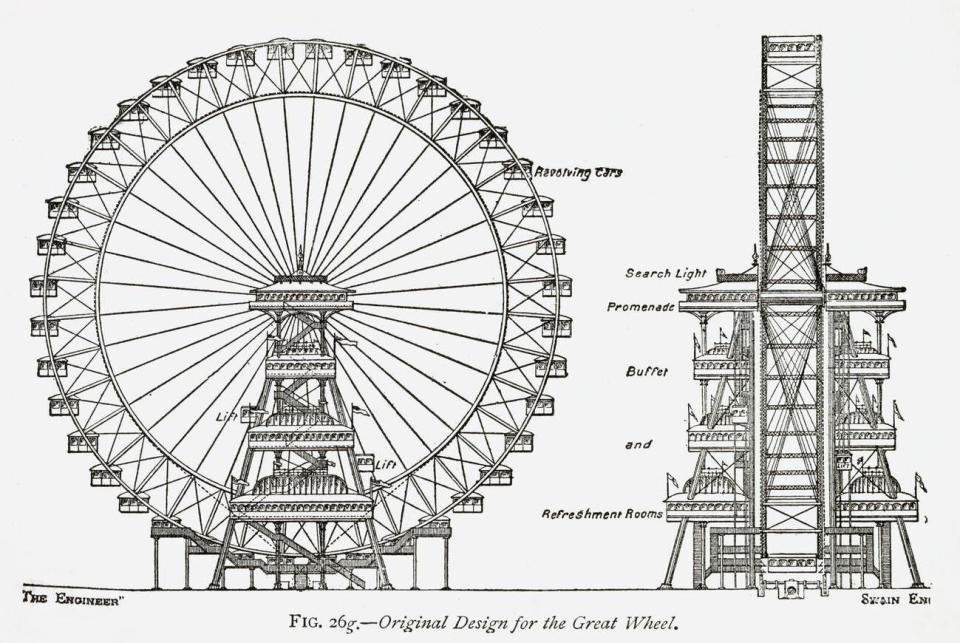
Legend has it he was inspired watching a water wheel turn. "He believed all along in the science, in the engineering, and he knew that it could work, even though it hadn't been done," Durica said.
Built in less than six months, his wheel opened to the public in June 1893. The steel structure was massive, climbing 264 feet, with 36 cars, each carrying 60 passengers. At the time, it was the tallest object in Chicago.
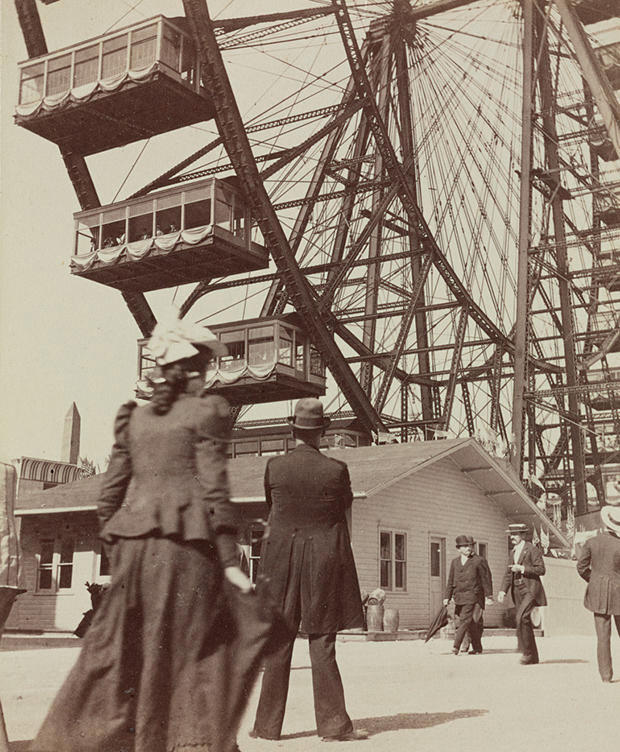
"It was an experience unlike people had ever really had before," Durica said. "You really sort of lose yourself in the experience as the world below you faded away and then suddenly came back into view, faded away again…"
It's a sensation that endures to this day, with Ferris wheels (or observation wheels) spinning worldwide, in London, Las Vegas, and in Dubai, where one rises more than 800 feet.
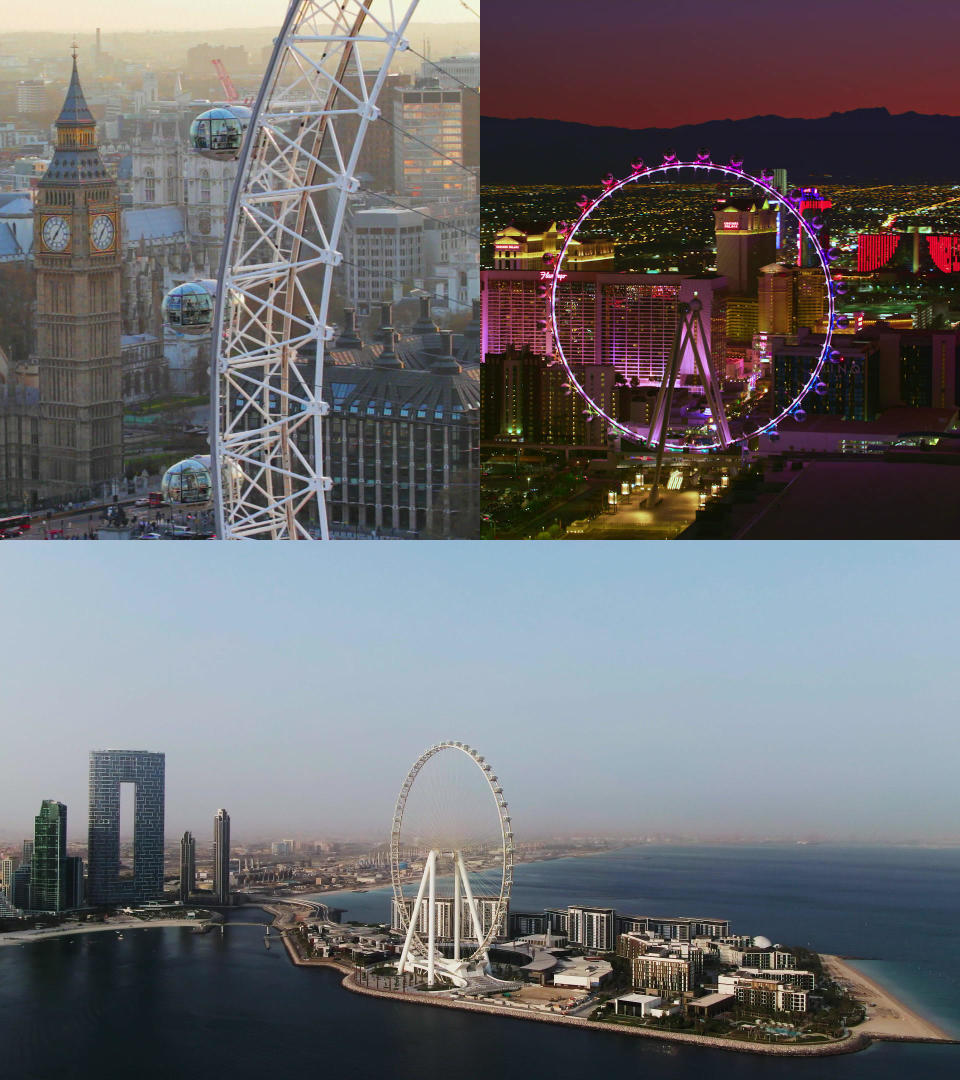
"Sunday Morning" paid a visit to the 300-foot-tall Dream Wheel in New Jersey. "The original Ferris wheel was steam-driven; we are 100 percent electronic. No steam, no hydraulics, just all electronics," said David Moore, the general operations manager.
Saberi asked, "What makes a wheel so enticing to engineers like yourself?"
"The size, the movement, and it's a pure work of art in the sky, spinning, with people on it enjoying themselves," Moore said.
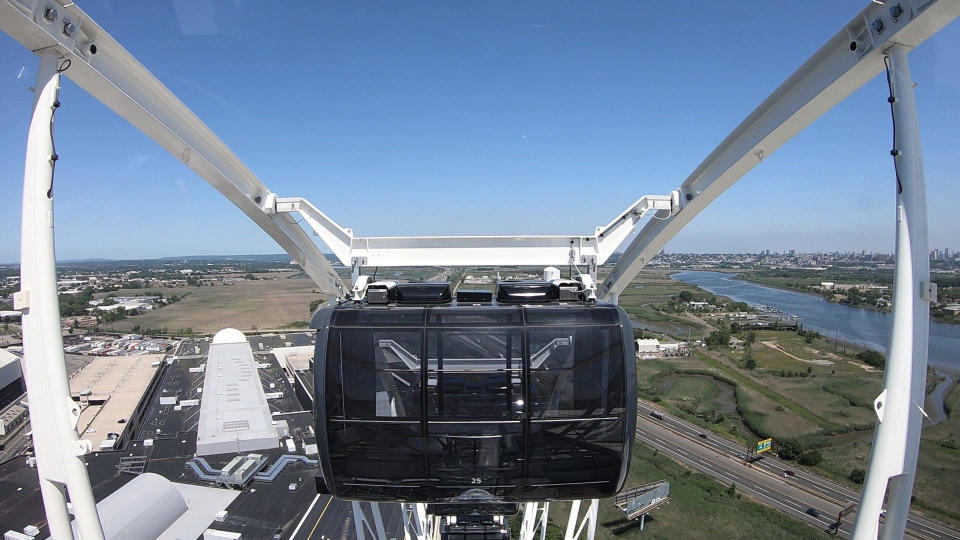
Professor and author Caron Levis captures the whimsy of a Ferris wheel in her children's book, "Stop That Yawn." Saberi met her at the famed Wonder Wheel at Coney Island, which has been running since 1920.
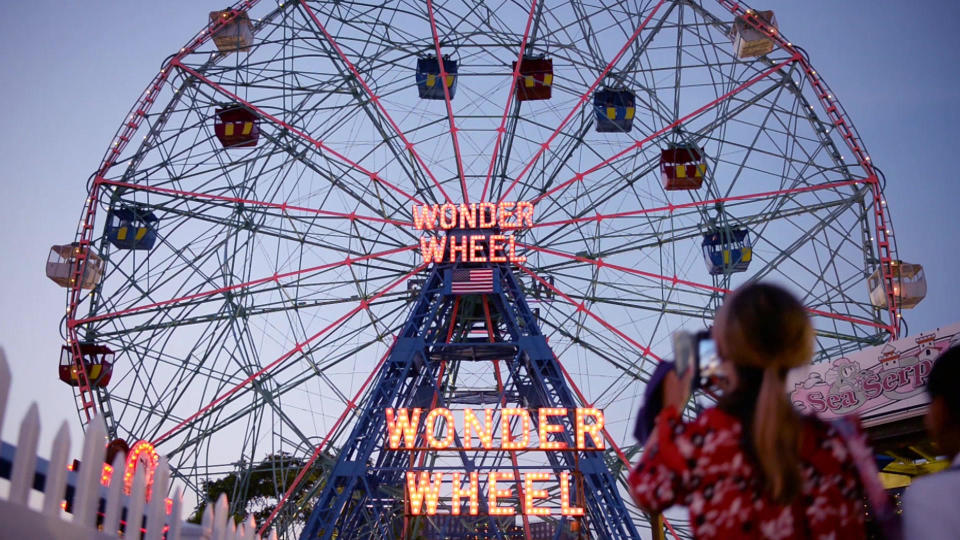
"We're just naturally drawn to it, both as just people, but also writers and artists," Levis said.
The wheel has its place in popular culture, from the romantic in "The Notebook," to the menacing, with Orson Welles in "The Third Man."
As for the original, Paul Durica said it came to a halt soon after the Chicago World's Fair ended, when it was demolished. "Nobody wants it, so they decide basically to dynamite it. And that's the sad end of the original Ferris wheel," he said.
Out of over a hundred thousand parts, a bolt is one of the few pieces that remains. Where the original Ferris wheel stood, today an ice rink is in its place.
What Ferris built also broke him. He went bankrupt, got typhoid fever, and died at age 37, in 1896.
But all these years later, his invention keeps spinning, bringing a smile to Tom, Ron and Cougar Peck – Ferris' great-great-great-great-nephews.
They took a ride with us on the Centennial Wheel in Chicago. Saberi asked, "When you see all the kids getting off of this wheel, and other wheels, how does that make you feel?"
"Very proud," Tom replied. "The tradition's carrying on."
And what would George Ferris think of all the wheels around the world today? According to Durica, "George Ferris would not be surprised at all about the popularity of his invention. He knew it would work. He would probably say, if he surveyed the world and looked at things like the Wonder Wheel at Coney Island, the London Eye, 'See, I told you so. This is a great attraction!'"
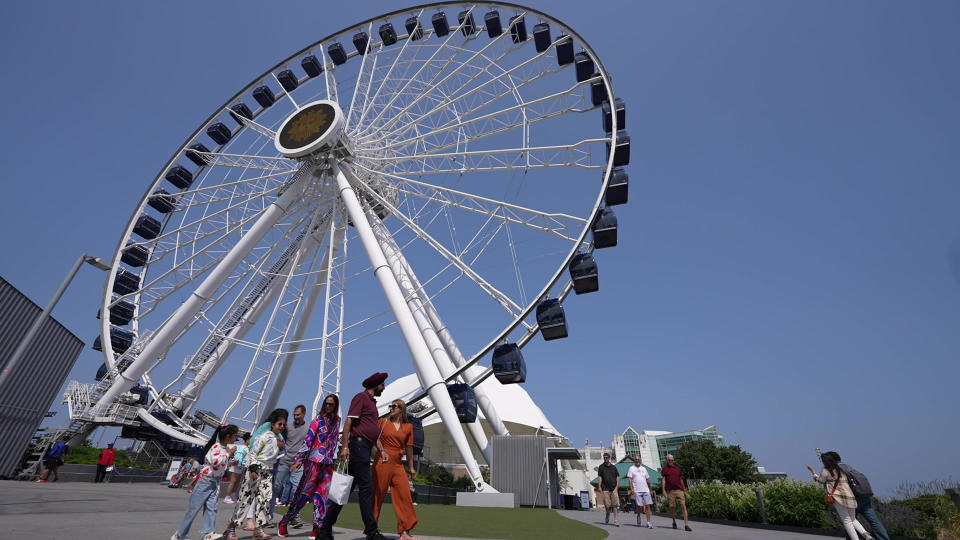
GALLERY: Early photos of amusement parks
For more info:
Deno's Wonder Wheel, Coney Island, N.Y.Dream Wheel, East Rutherford, New JerseyCentennial Wheel, ChicagoChicago History Museum"Stop That Yawn" by Caron Levis, illustrated by LeUyen Pham (Atheneum Books for Young Readers), in Hardcover and eBook formats, available via Amazon, Barnes & Noble and Bookshop.org
Story produced by Gabriel Falcon. Editor: Joseph Frandino.
Lindsay Gorman says context is "really important" in differentiating AI-generated images
UC president Michael Drake use of affirmative action in their system "has been removed"
Full interview: Former Vice President Mike Pence on "Face the Nation"

